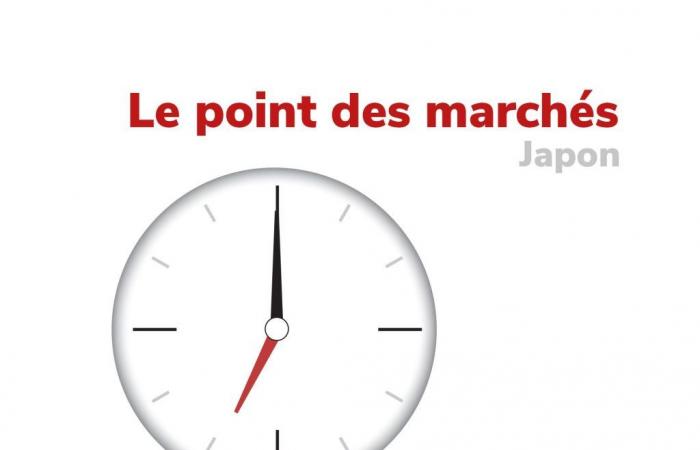The Shanghai Composite Index climbed 3.32% to 3,447.24 points around 06:20 GMT, after soaring more than 10% at the opening. That of Shenzhen gained 5.79% to 2,039.04 points.
Mainland China’s stock markets jumped on Tuesday after a public holiday week before moderating their gains due to lack of announcement of new stimulus measures, while Hong Kong stumbled on profit-taking, with Tokyo closing slightly down.
The Shanghai Composite Index climbed 3.32% to 3,447.24 points around 06:20 GMT, after soaring more than 10% at the opening. That of Shenzhen gained 5.79% to 2,039.04 points.
The market remained marked by strong optimism about its recovery after a week of closure, although the Chinese authorities did not unveil on Tuesday, contrary to expectations, significant new economic recovery measures.
“We are fully confident of achieving economic and societal development goals this year,” Zheng Shanjie, a senior Chinese official, said Tuesday at a press conference of the country’s powerful planning agency.
This speech was eagerly awaited on Tuesday, ten days after Beijing’s announcement of measures on a scale unprecedented in years, including rate reductions and more accessible real estate loans. These measures caused the stock markets of Hong Kong and mainland China to soar by more than 20%.
“Everyone is watching for this surge in the Chinese markets to run out of steam, but after mediocre performance for most of the last four years, there is significant room for catching up for some time to come,” insists Kathleen Brooks, analyst at XTB broker.
In Hong Kong, whose stock market is the only one in China to have remained open last week, the Hang Seng index fell sharply by 7.15% to 21.3448.61 points around 06:20 GMT, investors reaping profits after the sharp increases previous sessions.
Oil boom
In Japan, the flagship Nikkei index ended with a decline of 1% to 38,937.54 points. The broader Topix index lost 1.47% to 2,699.15 points.
The Japanese markets also followed the declines recorded the day before on Wall Street, and in a feverish climate faced with geopolitical tensions in the Middle East and their impact on the crude market.
Stimulated by fear of an Israeli attack on Iranian oil infrastructure, the price of a barrel of Brent, the world oil benchmark, closed on Monday above $80, a first in a month and a half.
Its American equivalent, West Texas Intermediate (WTI), rose to $78.46 at the start of Asian trading, the highest since mid-July, before however losing ground in a recovering market. his breath: it was trading around 06:20 GMT at $75.79, down 1.76%.
“There are serious concerns about an escalation of the conflict likely to jeopardize Iranian production (of black gold), with threats of serious disruptions in the Strait of Hormuz, a crucial artery of global oil traffic,” observes Stephen Innes , analyst at SPI Asset Management.
A sign of a renewed appetite for safe haven values, the yen strengthened somewhat: it traded Tuesday around 06:30 GMT at 147.96 yen per dollar, compared to 148.38 yen the day before at 09:00 GMT.
It stabilized against the single European currency, at 162.53 yen per euro, after rising to 162.05 yen at the start of Asian trade.






